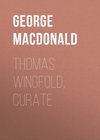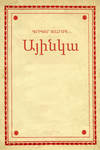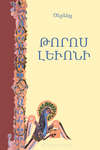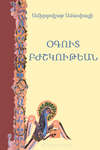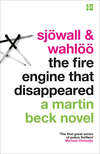Kitabı oku: «Thomas Wingfold, Curate», sayfa 11
CHAPTER XXX. THE CURATE’S PROGRESS
The visits of Wingfold to the little people at the gate not only became frequent, but more and more interesting to him, and as his office occasioned few demands on his attention, Polwarth had plenty of time to give to one who sought instruction in those things which were his very passion. He had never yet had any pupil but his niece, and to find another, and one whose soul was so eager after that of which he had such long-gathered store to dispense, was a keen, pure, and solemn delight. It was that for which he had so often prayed—an outlet for the living waters of his spirit into dry and thirsty lands. He had not much faculty for writing, although now and then he would relieve his heart in verse; and if he had a somewhat remarkable gift of discourse, to attempt public utterance would have been but a vain exposure of his person to vulgar mockery. In Wingfold he had found a man docile and obedient, both thirsting after, and recognizant of the truth, and if he might but aid him in unsealing the well of truth in his own soul, the healing waters might from him flow far and near. Not as the little Zacchæus who pieced his own shortness with the length of the sycamore tree, so to rise above his taller brethren and see Jesus, little Polwarth would lift tall Wingfold on his shoulders, first to see, and then cry aloud to his brethren who was at hand.
For two or three Sundays, the curate, largely assisted by his friend, fed his flock with his gleanings from other men’s harvests, and already, though it had not yet come to his knowledge, one consequence was, that complaints, running together, made a pool of discontent, and a semi-public meeting had been held, wherein was discussed, and not finally negatived, the propriety of communicating with the rector on the subject. Some however held that, as the incumbent paid so little attention to his flock, it would be better to appeal to the bishop, and acquaint him with the destitution of that portion of his oversight. But things presently took a new turn, at first surprising, soon alarming to some, and at length, to not a few, appalling.
Obedient to Polwarth’s instructions, Wingfold had taken to his New Testament. At first, as he read and sought to understand, ever and anon some small difficulty, notably, foremost of all, the discrepancy in the genealogies—I mention it merely to show the sort of difficulty I mean—would insect-like shoot out of the darkness, and sting him in the face. Some of these he pursued, encountered, crushed—and found he had gained next to nothing by the victory; and Polwarth soon persuaded him to let such, alone for the present, seeing they involved nothing concerning the man at a knowledge of whom it was his business to arrive. But when it came to the perplexity caused by some of the sayings of Jesus himself, it was another matter. He MUST understand these, he thought, or fail to understand the man. Here Polwarth told him that, if, after all, he seemed to fail, he must conclude that possibly the meaning of the words was beyond him, and that the understanding of them depended on a more advanced knowledge of Jesus himself; for, while words reveal the speaker, they must yet lie in the light of something already known of the speaker to be themselves intelligible. Between the mind and the understanding of certain hard utterances, therefore, there must of necessity lie a gradation of easier steps. And here Polwarth was tempted to give him a far more important, because more immediately practical hint, but refrained, from the dread of weakening, by PRESENTATION, the force of a truth which, in DISCOVERY, would have its full effect. For he was confident that the curate, in the temper which was now his, must ere long come immediately upon the truth towards which he was tempted to point him.
On one occasion when Wingfold had asked him whether he saw the meaning of a certain saying of our Lord, Polwarth answered thus:
“I think I do, but whether I could at present make you see it, I cannot tell. I suspect it is one of those concerning which I have already said that you have yet to understand Jesus better before you can understand them. Let me, just to make the nature of what I state clearer to you, ask you one question: tell me, if you can, what, primarily, did Jesus, from his own account of himself, come into the world to do?”
“To save it,” answered Wingfold.
“I think you are wrong,” returned Polwarth. “Mind I said PRIMARILY. You will yourself come to the same conclusion by and by. Either our Lord was a phantom—a heresy of potent working in the minds of many who would be fierce in its repudiation—or he was a very man, uttering the heart of his life that it might become the life of his brethren; and if so, an honest man can never ultimately fail of getting at what he means. I have seen him described somewhere as a man dominated by the passion of humanity—or something like that. The description does not, to my mind, even shadow the truth. Another passion, if such I may dare to call it, was the light of his life, dominating even that which would yet have been enough to make him lay down his life.”
Wingfold went away pondering.
Though Polwarth read little concerning religion except the New Testament, he could yet have directed Wingfold to several books which might have lent him good aid in his quest after the real likeness of the man he sought; but he greatly desired that on the soul of his friend the dawn should break over the mountains of Judæa—the light, I mean, flow from the words themselves of the Son of Man. Sometimes he grew so excited about his pupil and his progress, and looked so anxiously for the news of light in his darkness, that he could not rest at home, but would be out all day in the park—praying, his niece believed, for the young parson. And little did Wingfold suspect that, now and again when his lamp was burning far into the night because he struggled with some hard saying, the little man was going round and round the house, like one muttering charms, only they were prayers for his friend: ill satisfied with his own feeble affection, he would supplement it with its origin, would lay hold upon the riches of the Godhead, crying for his friend to “the first stock-father of gentleness;”—folly all, and fair subject of laughter to such as George Bascombe, if there be no God; but as Polwarth, with his whole, healthy, holy soul believed there is a God—it was for him but simple common sense.
Still no daybreak—and now the miracles had grown troublesome! Could Mr. Polwarth honestly say that he found no difficulty in believing things so altogether out of the common order of events, and so buried in the darkness and dust of antiquity that investigation was impossible?
Mr. Polwarth could not say that he had found no such difficulty.
“Then why should the weight of the story,” said Wingfold, “the weight of its proof, I mean, to minds like ours, coming so long after, and by their education incapacitated for believing in such things, in a time when the law of everything is searched into–”
“And as yet very likely as far from understood as ever,” interposed but not interrupted Polwarth.
“Why should the weight of its proof, I ask, be laid upon such improbable things as miracles? That they are necessarily improbable, I presume you will admit.”
“Having premised that I believe every one recorded,” said Polwarth, “I heartily admit their improbability. But the WEIGHT of proof is not, and never was laid upon them. Our Lord did not make much of them, and did them far more for the individual concerned than for the sake of the beholders. I will not however talk to you about them now. I will merely say that it is not through the miracles you will find the Lord, though, having found him, you will find him there also. The question for you is not, Are the miracles true? but, Was Jesus true? Again I say, you must find him—the man himself. When you have found him, I may perhaps retort upon you the question—Can you believe such improbable things as the miracles, Mr. Wingfold?”
The little man showed pretty plainly by the set of his lips that he meant to say no more, and again Wingfold had, with considerable dissatisfaction and no answer, to go back to his New Testament.
CHAPTER XXXI. THE CURATE MAKES A DISCOVERY
At length, one day, as he was working with a harmony, comparing certain passages between themselves, and as variedly given in the gospels, he fell into a half-thinking, half-dreaming mood, in which his eyes, for some time unconsciously, rested on the verse, “Ye will not come unto me that ye might have life:” it mingled itself with his brooding, and by and by, though yet he was brooding rather than meditating, the form of Jesus had gathered, in the stillness of his mental quiescence, so much of reality that at length he found himself thinking of him as of a true-hearted man, mightily in earnest to help his fellows, who could not get them to mind what he told them.
“Ah!” said the curate to himself, “if I had but seen him, would not I have minded him!—would I not have haunted his steps, with question upon question, until I got at the truth!”
Again the more definite thought vanished in the seething chaos of reverie, which dured unbroken for a time,—until again suddenly rose from memory to consciousness and attention the words: “Why call ye me Lord, Lord, and do not the things which I say?”
“Good God!” he exclaimed, “here am I bothering over words, and questioning about this and that, as if I were testing his fitness for a post I had to offer him, and he all the time claiming my obedience! I cannot even, on the spur of the moment at least, tell one thing he wants me to do; and as to doing anything because he told me—not once did I ever! But then how am I to obey him until I am sure of his right to command? I just want to know whether I am to call him Lord or not. No, that won’t do either, for he says, Why even of yourselves judge ye not what is right? And do I not know—have I ever even doubted that what he said we ought to do was the right thing to do? Yet here have I, all these years, been calling myself a Christian, ministering, forsooth, in the temple of Christ, as if he were a heathen divinity, who cared for songs and prayers and sacrifices, and cannot honestly say I ever once in my life did a thing because he said so, although the record is full of his earnest, even pleading words! I have NOT been an honest man, and how should a dishonest man be a judge over that man who said he was the Christ of God? Would it be any wonder if the things he uttered should be too high and noble to be by such a man recognized as truth?”
With this, yet another saying dawned upon, him: IF ANY MAN WILL DO HIS WILL, HE SHALL KNOW OF THE DOCTRINE, WHETHER IT BE OF GOD, OR WHETHER I SPEAK OF MYSELF.
He went into his closet and shut to the door—came out again, and went straight to visit a certain grievous old woman.
The next open result was, that, on the following Sunday, a man went up into the pulpit who, for the first time in his life, believed he had something to say to his fellow-sinners. It was not now the sacred spoil of the best of gleaning or catering that he bore thither with him, but the message given him by a light in his own inward parts, discovering therein the darkness and the wrong.
He opened no sermon-case, nor read words from any book, save, with trembling voice, these:
“WHY CALL YE ME LORD, LORD, AND DO NOT THE THINGS WHICH I SAY?”
I pause for a moment in my narrative to request the sympathy of such readers as may be capable of affording it, for a man whose honesty makes him appear egotistic. When a man, finding himself in a false position, is yet anxious to do the duties of that position until such time as, if he should not in the meantime have verified it, and become able to fill it with honesty, he may honourably leave it, I think he may well be pardoned if, of inward necessity, he should refer to himself in a place where such reference may be either the greatest impiety, or the outcome of the truest devotion. In him it was neither: it was honesty—and absorption in the startled gaze of a love that believed it had caught a glimmer of the passing garment of the Truth. Thus strengthened—might I not say inspired? for what is the love of truth and the joy therein, if not a breathing into the soul of the breath of life from the God of truth?—he looked round upon his congregation as he had never dared until now—saw face after face, and knew it—saw amongst the rest that of Helen Lingard, so sadly yet not pitifully altered, with a doubt if it could be she; trembled a little with a new excitement, which one less modest or less wise might have taken—how foolishly!—instead of the truth perceived, for the inspiration of the spirit; and, sternly suppressing the emotion, said,
“My hearers, I come before you this morning to utter the first word of truth it has ever been given to ME to utter.”
His hearers stared both mentally and corporeally.
“Is he going to deny the Bible?” said some.
–“It will be the last,” said others, “if the rector hear in time how you have been disgracing yourself and profaning his pulpit.”
“And,” the curate went on, “it would be as a fire in my bones did I attempt to keep it back.
“In my room, three days ago, I was reading the strange story of the man who appeared in Palestine saying that he was the Son of God, and came upon those words of his which I have now read in your hearing. At their sound the accuser, Conscience, awoke in my bosom, and asked, ‘Doest thou the things he saith to thee?’ And I thought with myself,—‘Have I this day done anything he says to me?—when did I do anything I had heard of him? Did I ever’—to this it came at last—‘Did I ever, in all my life, do one thing because he said to me DO THIS?’ And the answer was NO, NEVER. Yet there I was, not only calling myself a Christian, but on the strength of my Christianity, it was to be presumed, living amongst you, and received by you, as your helper on the way to the heavenly kingdom—a living falsehood, walking and talking amongst you!”
“What a wretch!” said one man to himself, who made a large part of his living by the sale of under-garments whose every stitch was an untacking of the body from the soul of a seamstress. “Bah!” said some. “A hypocrite, by his own confession!” said others. “Exceedingly improper!” said Mrs. Ramshorn. “Unheard-of and most unclerical behaviour! And actually to confess such paganism!” For Helen, she waked up a little, began to listen, and wondered what he had been saying that a wind seemed to have blown rustling among the heads of the congregation.
“Having made this confession,” Wingfold proceeded, “you will understand that whatever I now say, I say to and of myself as much as to and of any other to whom it may apply.”
He then proceeded to show that faith and obedience are one and the same spirit, passing as it were from room to room in the same heart: what in the heart we call faith, in the will we call obedience. He showed that the Lord refused absolutely the faith that found its vent at the lips in the worshipping words, and not at the limbs in obedient action—which some present pronounced bad theology, while others said to themselves surely that at least was common sense. For Helen, what she heard might be interesting to clergymen, or people like her aunt who had to do with such matters, but to her it was less than nothing and vanity, whose brother lay at home “sick in heart and sick in head.”
But hard thoughts of him could not stay the fountain of Wingfold’s utterance, which filled as it flowed. Eager after a right presentation of what truth he saw, he dwelt on the mockery it would be of any man to call him the wisest, the best, the kindest, yea and the dearest of men, yet never heed either the smallest request or the most urgent entreaty he made.
“A Socinian!” said Mrs. Ramshorn.
“There’s stuff in the fellow!” said the rector’s churchwarden, who had been brought up a Wesleyan.
“He’d make a fellow fancy he did believe all his grandmother told him!” thought Bascombe.
As he went on, the awakened curate grew almost eloquent. His face shone with earnestness. Even Helen found her gaze fixed upon him, though she had not a notion what he was talking about. He closed at length with these words:
“After the confession I have now made to you, a confession which I have also entreated everyone to whom it belongs to make to himself and his God, it follows that I dare not call myself a Christian. How should such a one as I know anything about that which, if it be true at all, is the loftiest, the one all-absorbing truth in the universe? How should such a fellow as I”—he went on, growing scornful at himself in the presence of the truth—“judge of its sacred probabilities? or, having led such a life of simony, be heard when he declares that such a pretended message from God to men seems too good to be true? The things therein contained I declare good, yet went not and did them. Therefore am I altogether out of court, and must not be heard in the matter.
“No, my hearers, I call not myself a Christian, but I call everyone here who obeys the word of Jesus, who restrains anger, who declines judgment, who practises generosity, who loves his enemies, who prays for his slanderers, to witness my vow, that I will henceforth try to obey him, in the hope that he whom he called God and his Father, will reveal to him whom you call your Lord Jesus Christ, that into my darkness I may receive the light of the world!”
“A professed infidel!” said Mrs. Ramshorn. “A clever one too! That was a fine trap he laid for us, to prove us all atheists as well as himself! As if any mere mortal COULD obey the instructions of the Saviour! He was divine; we are but human!”
She might have added, “And but poor creatures as such,” but did not go so far, believing herself more than an average specimen.
But there was one shining face which, like a rising sun of love and light and truth, “pillowed his chin,” not “on an orient wave,” but on the book-board of a free seat. The eyes of it were full of tears, and the heart behind it was giving that God and Father thanks, for this was more, far more than he had even hoped for, save in the indefinite future. The light was no longer present as warmth or vivification alone, but had begun to shine as light in the heart of his friend, to whom now, praised be God! the way lay open into all truth. And when the words came, in a voice that once more trembled with emotion—“Now to God the Father,”—he bent down his face, and the poor, stunted, distorted frame and great grey head were grievously shaken with the sobs of a mighty gladness. Truth in the inward parts looked out upon him from the face of one who stood before the people their self-denied teacher! How would they receive it? It mattered not. Those whom the Father had drawn, would hear.
Polwarth neither sought the curate in the vestry, waited for him at the church-door, nor followed him to his lodging. He was not of those who compliment a man on his fine sermon. How grandly careless are some men of the risk of ruin their praises are to their friends! “Let God praise him!” said Polwarth; “I will only dare to love him.” He would not toy with his friend’s waking Psyche.
CHAPTER XXXII. HOPES
It was the first Sunday Helen had gone to church since her brother came to her. On the previous Sunday he had passed some crisis and begun to improve, and by the end of the week was so quiet, that longing for a change of atmosphere, and believing he might be left with the housekeeper, she had gone to church. On her return she heard he was no worse, although he had “been a-frettin’ after her.” She hurried to him as if he had been her baby.
“What do you go to church for?” he asked, half-petulantly, like a spoilt child, with languid eyes whence the hard fire had vanished. “What’s the use of it?”
He looked at her, waiting an answer.
“Not much,” replied Helen. “I like the quiet and the music. That’s all.”
He seemed disappointed, and lay still for a few moments.
“In old times,” he said at last, “the churches used to be a refuge: I suppose that is why one can’t help feeling as if some safety were to be got from them yet.—Was your cousin George there this morning?”
“Yes, he went with us,” answered Helen.
“I should like to see him. I want somebody to talk to.”
Helen was silent. She was more occupied however in answering to herself the question why she shrank so decidedly from bringing Bascombe into the sick-room, than in thinking what she should say to Leopold. The truth was the truth, and why should she object to Leopold’s knowing, or at least being told as well as herself, that he need fear no punishment in the next world, whatever he might have to encounter in this; that there was no frightful God who hated wrong-doing to be terrified at; that even the badness of his own action need not distress him, for he and it would pass away as the blood he had shed had already vanished from the earth? Ought it not to encourage the poor fellow?—But to what? To live on and endure his misery, or to put an end to it and himself at once? Or perhaps to plunge into vice that he might escape the consciousness of guilt and the dread of the law?
I will not say that exactly such a train of thought as this passed through her mind, but of whatever sort it was, it brought her no nearer to a desire for the light of George Bascombe’s presence by the bedside of her guilty brother. At the same time her partiality for her cousin made her justify his exclusion thus: “George is so good himself, he is only fit for the company of good people. He would not in the least understand my poor Poldie, and would be too hard upon him.”
Since her brother’s appearance, in fact, she had seen very little of her cousin, and this not merely because her presence was so much required in the sick-chamber, but because she was herself unwilling to meet him. She had felt, almost without knowing it, that his character was unsympathetic, and that his loud, cold good-nature could never recognise or justify such love as she bore to her brother! Nor was this all; for, remembering how he had upon one occasion expressed himself with regard to criminals, she feared even to look in his face, lest his keen, questioning, unsparing eye should read in her soul that she was the sister of a murderer.
Before this time however a hint of light had appeared in the clouds that enwrapped her and Leopold: she had begun to doubt whether he had really committed the crime of which he accused himself. There had been no inquiry after him, except from his uncle, concerning his absence from Cambridge, for which his sudden attack of brain fever served as more than sufficient excuse. That there had been such a murder, the newspapers left her no room to question—but might not the relation in which he stood to the victim—the horror of her death, the insidious approaches of the fever, and the influences of that hateful drug, have combined to call up an hallucination of blood-guiltiness? And what at length all but satisfied her of the truth of her conjecture was that, when he began to recover, Leopold seemed himself in doubt at times whether his sense of guilt had not its origin in some one or other of the many dreams which had haunted him throughout his illness, knowing only too well that it was long since dreams had become to him more real than the greater part of what was going on around him. To this blurring and confusing of consciousness it probably contributed, that, in the first stages of the fever, he was under the influence of the same drug which had been working upon his brain up to the very moment when he committed the crime.
During the week the hope had almost settled into conviction; and one consequence was that, although she was not a whit more inclined to introduce George Bascombe to the sick-chamber, she found herself not only equal, but no longer averse to meeting him; and on the following Saturday, when he presented himself as usual, come to spend the Sunday, she listened to her aunt, and consented to go out with him for a ride—in the evening, however, when Mrs. Rainshorn herself, who had shown Leopold great and genuine kindness, would be able to sit with him. They therefore had dinner early, and Helen went again to her brother’s room, unwilling to leave him a moment until she gave up her charge to her aunt.
They had tea together, and Leopold was very quiet. It is wonderful with what success the mind will accommodate itself, in its effort after peace, to the presence of the most torturing thought. But Helen took this quietness for a sign of innocence, not knowing that the state of the feelings is neither test nor gauge of guilt. The nearer perfection a character is, the louder is the cry of conscience at the appearance of fault; and, on the other hand, the worst criminals have had the easiest minds.
Helen also was quiet, and fell into a dreamy mood, watching her brother, who every now and then turned on her a look of love and gratitude which moved her heart to its very depths. Not until she heard the horses coming round from the stable, did she rise to go and change her dress.
“I shall not be long away from you, Poldie,” she said.
“Do not forget me, Helen,” he returned. “If you forget me, an enemy will think of me.”
His love comforted her, and yet further strengthened her faith in his innocence; and it was with a kind of half-repose, timid, wavering, and glad, upon her countenance—how different from the old, dull, wooden quiescence!—that she joined her cousin in the hall. A moment, and he had lifted her to the saddle, and was mounted by her side.
